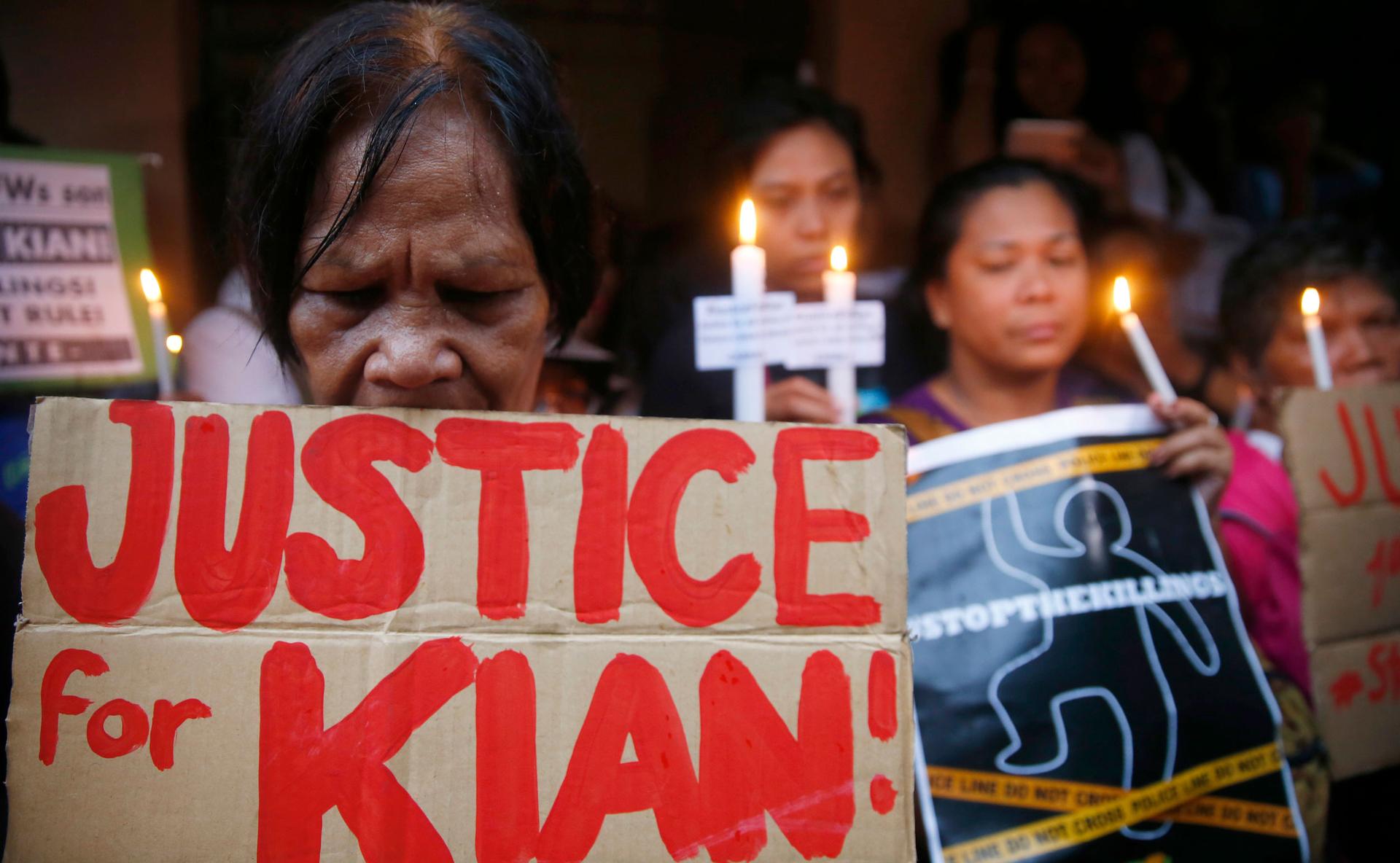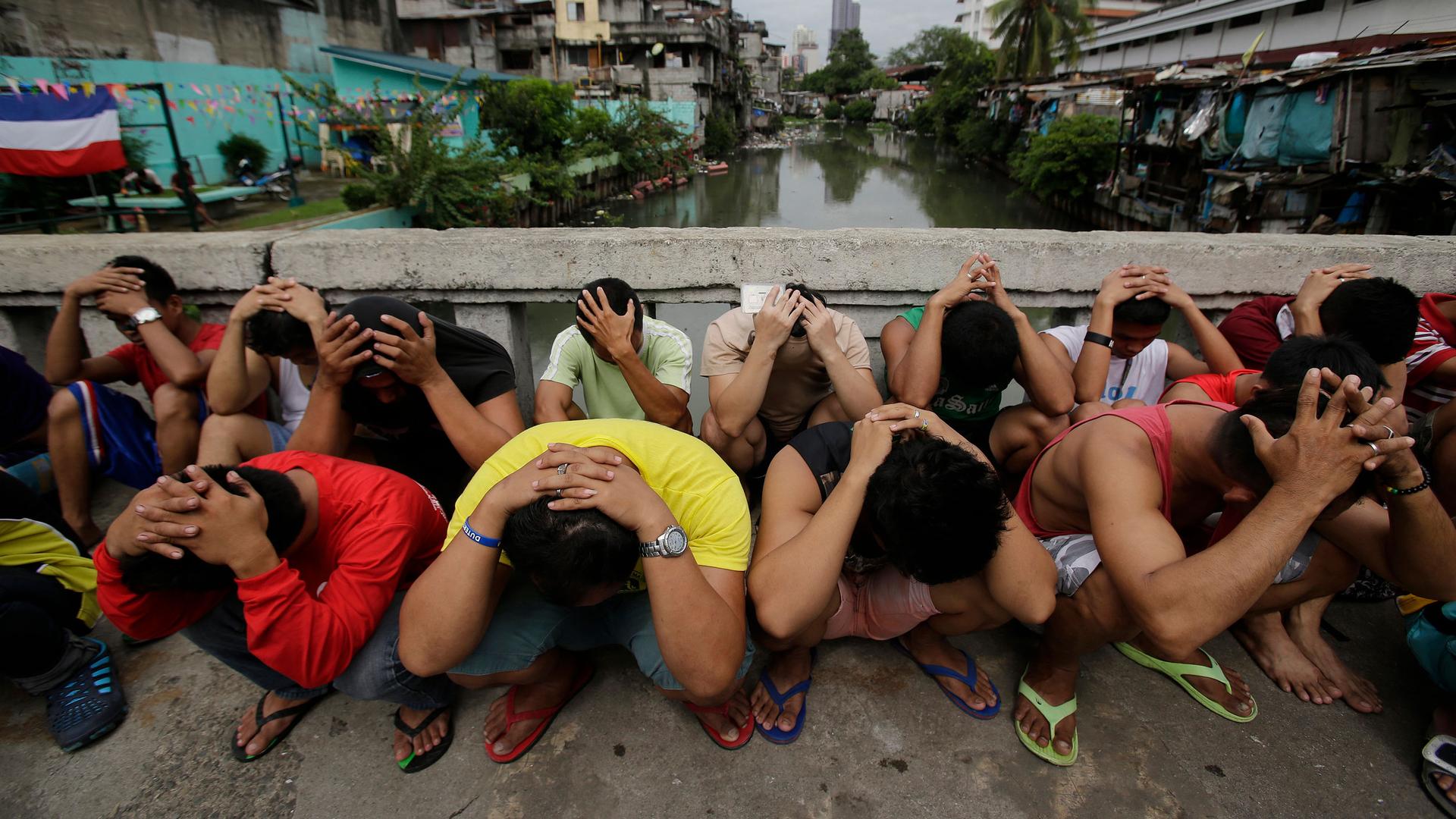A rare murder conviction in the Philippines reveals a ‘broken’ justice system
A Philippine court has found a former police officer guilty of murdering two teenagers in connection with the country’s so-called “war on drugs.”
Former Caloocan policeman Jeffrey Perez faces up to 40 years in prison without parole for the killings of 19-year-old Carl Angelo Arnaiz, and 14-year-old Reynaldo de Guzman, in 2017, according to court documents made public on March 13.
Perez has also been ordered to pay the families a total of nearly $13,000 in civil damages.
Since former President Rordrigo Duterte launched the anti-drug campaign in 2016, convictions of law enforcement officers have been rare.
The former cop was already serving jail time for another conviction related to the same murders. In November 2022, Perez was also found guilty of torturing and hiding evidence of the murders.
Still, it took five years for the case to work its way through the courts after charges against Perez and another former policeman, who died in prison in 2019, were initially filed in 2018.
Carlos Conde, senior researcher with Human Rights Watch in Manila, said that while this latest verdict is very welcome, it shows how broken the Philippines justice system really is.
“Because this is just the second conviction for murder in a drug war case out of the thousands, probably tens of thousands of similar cases, that occurred since 2016,” he said. “The fight for accountability has barely begun.”
An overburdened justice system
It wasn’t until two years into former President Duterte’s so-called “war on drugs” that the first murder conviction was handed down.
In November 2018, three former police officers were found guilty of shooting and killing 17-year-old Kian delos Santos during a drug raid the year before.
Witnesses and CCTV played a crucial role in both cases, human rights lawyer Maria Sol Taule said.
“In the Philippines, you have to have hard evidence, meaning physical evidence, like videos, CCTV recordings, documentary evidence and you don’t have that, it’s like a ‘he said, she-said’ thing.”
Both of these murder cases also got a lot of media coverage, which helped them, Taule said.
“But many, many victims were not covered by the mainstream media and so, you know, they end up statistics of victims of the drug war,” she said.

Government officials say only a little over 6,200 people have died in anti-drug operations since the drug war began in 2016. But rights groups, such as CenterLaw Philippines, estimate that number could be three times higher with most of these killings being extrajudicial — committed by vigilante groups or police officers themselves.
Human rights experts also say most of the victims are poor, low-level drug pushers at best and some, like Kian delos Santos, were just in the wrong place at the wrong time.
Meanwhile, Taule said families are usually hesitant to pursue justice because these trials are so stigmatized and can also be lengthy and expensive.
“Because if you let the public prosecutors handle it, they’re already overburdened,” she said.
“So you want to have a competent and focused legal counsel, that means you have to hire private counsel, it’s expensive.”
The Philippine justice system is plagued by other problems, she said, including a lack of public defenders.
According to the Philippine Collegian, the student-run newspaper at the University of the Philippines Diliman, the 2,400 public defendants of the Public Attorney’s Office must juggle 816,000 cases nationwide per year. That’s an average of 340 cases per public defender.
Meanwhile, Taule said there is also a lack of available forensic scientists and doctors to perform autopsies. There are only two forensic pathologists in all of the Philippines, and one is nearing retirement age.
“We have really overburdened courts because of the drug war, which means that cases are really slow, at a snail’s pace every time,” Taule said. “It’s really hard for us.”
‘It has to go deep’
Rev. Flaviano “Flavie” Villanueva, a missionary with the Society of the Divine Word in Manila, said there is also a lack of political will to bring convictions.
“How do you prosecute the criminals if they are the police themselves?” asked Villanueva, who has worked with drug war victims’ families.
His Catholic nonprofit Program Paghilom has helped the widows and orphans of drug war victims with everything from food assistance to counseling for years.
Villanueva said prosecutions should not stop at low-level cops — should go much higher, all the way to Duterte himself.
“It has to go deep or even high up to the author of the killings themselves,” he said.
“If they will not be investigated, then we’re just putting up a show here and are missing out on the core people who architected all this.”
But prosecutions of such high-up officials would need to happen though the international justice system, he said.
Earlier this year, the International Criminal Court announced it was resuming its investigation into alleged atrocities connected to the ongoing drug war. The initial probe was put on hold in 2021, as the former Duterte administration sought to conduct its own investigation. But the ICC said the former government has come up short of convincing them that an outside investigation wasn’t needed.
However, President Ferdinand “Bongbong” Marcos Jr. has made it clear that the ICC has no jurisdiction in the Philippines and has vowed to not cooperate with any investigation.
The story you just read is accessible and free to all because thousands of listeners and readers contribute to our nonprofit newsroom. We go deep to bring you the human-centered international reporting that you know you can trust. To do this work and to do it well, we rely on the support of our listeners. If you appreciated our coverage this year, if there was a story that made you pause or a song that moved you, would you consider making a gift to sustain our work through 2024 and beyond?
